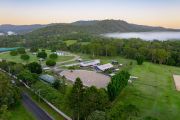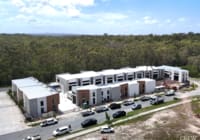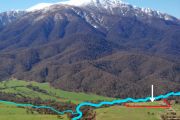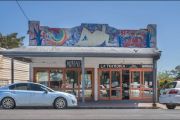
Singaporeans plot Aussie self-storage raid with $460m war chest
Singapore-based self-storage operator StorHub has secured $460 million of fresh equity commitments to launch its assault on the already crowded, but highly fragmented Australian self-storage market.
The company, which opened Singapore’s first self-storage facilities in 2003, was mostly acquired by US-based private equity firm Warburg Pincus in 2019.
Across Asia, StorHub’s portfolio spans 480 self-storage facilities offering 70,000 storage units in 17 cities in Singapore, Japan, Malaysia, South Korea, mainland China and Hong Kong.

Its fledgling Australian arm has already secured five properties in Sydney, Melbourne and Canberra and set its sights on becoming one of the leading self-storage platforms in Australia.
StorHub Australia chief executive Simon DeGaris, a former executive at Kennards Self Storage, declined to reveal any specific growth targets, but said the company planned to expand its footprint in gateway cities such as Sydney, Melbourne, and Brisbane “through strategic acquisitions and developments” and by “capitalising on a robust pipeline of opportunities”.
Following the acquisition in September of Japan’s Storage PLUS, StorHub Group revealed plans to amass a portfolio of up to $US5 billion ($7.7 billion) of assets through organic growth and M&A deals.
“We are primarily development-led,” Mr DeGaris told The Australian Financial Review. “However, we are open to all opportunities across the eastern seaboard in gateway cities and have the flexibility to look at joint venture structures and acquisitions of existing facilities that can be upgraded.”
He said $460 million of fresh equity commitments had come directly from StorHub Group.
Asked what was attractive about the Australian market, Mr DeGaris said there were several favourable tailwinds, including record population growth, increasing residential density, and evolving working from home conditions.
“These factors are creating a greater demand for modern, flexible and well-located self-storage,” he said.
The highly fragmented nature of Australia’s self-storage sector may also offer opportunities to expand, despite the presence of large operators such as ASX-listed National Storage REIT, recently listed Abacus Storage King and well-established private groups such as Kennards and Fort Knox.
According to the Self Storage Association of Australasia, about 1300 self-storage operators run nearly 3000 facilities in Australia and New Zealand. Of these, nearly 2300 are in Australia.
National Storage REIT, which has a $4.7 billion portfolio of self-storage facilities, reported a 6 per cent rise in underlying earnings to $76 million as part of its half-year updates.

The company, which trades under the ASX-ticker NSR, also revealed last month it had exchanged contracts to buy a self-storage portfolio of nine assets.
Abacus Storage King was spun out of ASX-listed property group Abacus in August following a $225 million raising and has $3.1 billion of assets.
Privately operated Kennards Self Storage – led by Rich Lister Sam Kennard – operates more than 100 facilities, which in 2023 generated a net profit of $328 million, according to its latest accounts filed with the corporate regulator.
Asked how StorHub would differentiate itself from existing operators, Mr DeGaris said its proposition was simply to deliver “modern, 24/7 accessible storage facilities that are e-commerce-enabled, meaning businesses can have goods accepted on their behalf.
“Many of the facilities will offer a business hub with co-working spaces, shared kitchens, copy and printing facilities and the ability to rent a desk on a casual basis for start-ups and micro-businesses who require warehousing,” he said.
StorHub’s first five Australian assets comprise one operating asset at Rouse Hill in Sydney’s north-west, two development projects in the Sydney suburbs of Alexandria and Miranda, a development project in the inner Melbourne suburb of Clifton Hill and a development site in Canberra.
The property on Bourke Road in Alexandria was acquired from ASX-listed cab operator A2B for $19 million.
Its sole operating property at Rouse Hill is a 9122-square-metre site, which offers 840 storage units.











